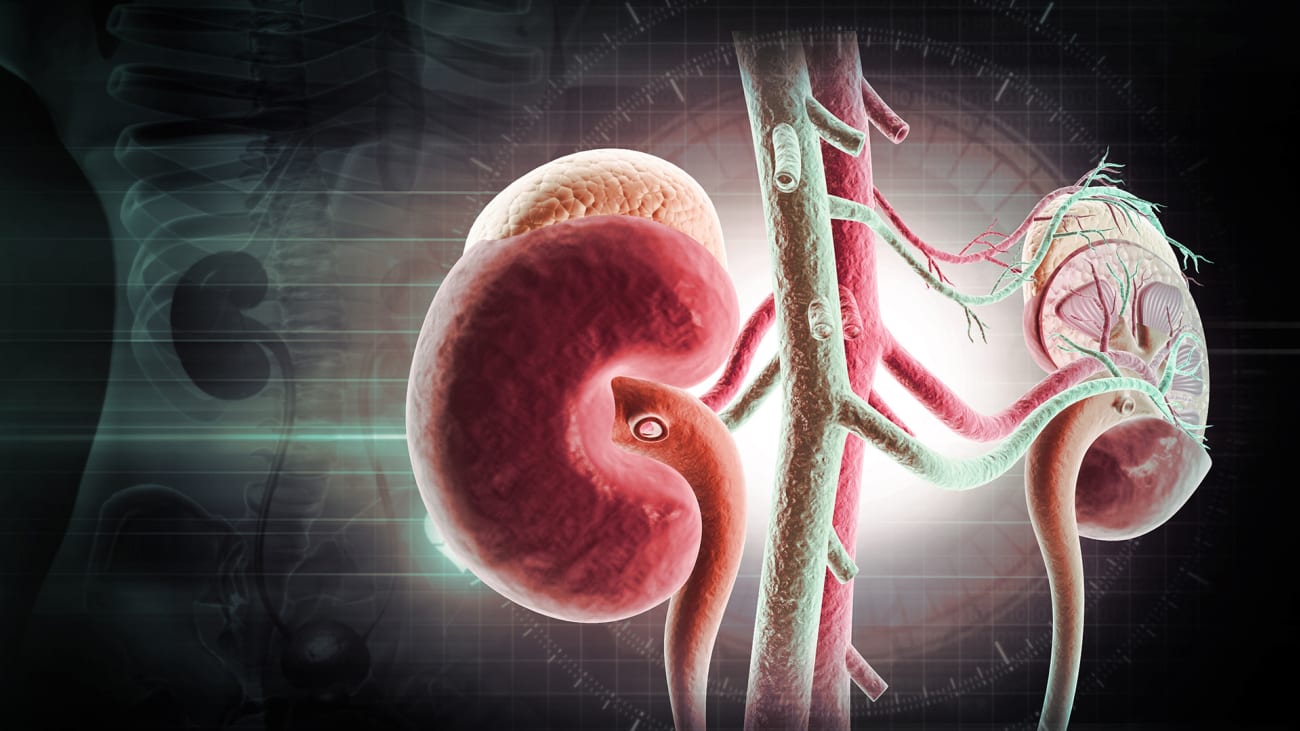

UCSF Health interventional cardiologists deliver radiofrequency energy to treat overactive nerves contributing to hypertension.
About 1 in 5 people with high blood pressure or hypertension have a form of the condition that is resistant to medication. These patients may have tried lifestyle changes or multiple medications at their highest doses without achieving optimal management of their condition. Without adequate control, a person with high blood pressure has an increased risk of heart attacks, strokes, heart failure, and kidney failure.
Now, UCSF Health physicians are performing a novel minimally invasive treatment for hypertension, called renal denervation, that provides an effective, long-term treatment option for patients who might otherwise have few options to control their blood pressure.
Renal denervation is a treatment that involves the kidneys and the nerves surrounding them, all of which play an important role in regulating blood pressure. In some people, these nerves become overactive, contributing to hypertension. Renal denervation works by calming the excessive activity of the nerves connected to the kidney.
“Many of our patients have suboptimal blood pressure control despite antihypertensive medications, and that increases their mid- and long-term risk of cardiovascular events and stroke,” said Michela Faggioni, MD, an interventional cardiologist and UCSF assistant professor of Cardiology. “Renal denervation can further help in reducing blood pressure with a one-time procedure that has stable long-lasting effects.”
The FDA-approved procedure uses Medtronic Simplicity technology and is performed by an interventional cardiologist who inserts a catheter through a blood vessel in the groin and guides it to the arteries that supply blood to the kidneys. Once in place, the cardiologist delivers radiofrequency energy through the catheter to reduce nerve activity. The treatment is performed on both the left and right renal arteries before the catheter is removed. It is usually a one-time treatment performed with moderate sedation, and most patients go home the same day.
“At UCSF, we are always in search of innovative and effective treatments that improve the health and quality of life of our patients,” said Faggioni. “Renal denervation is safe and complications are rare. Most patients are able to return to their normal activities within a few days.”
Patients may have follow-up appointments with the doctor who performed the procedure as well as the doctor who monitors their blood pressure. After the treatment, patients typically need to continue medication and healthy lifestyle habits to keep their blood pressure in a normal range. Some patients may eventually be able to reduce the number or dose of medications they take.
The UCSF Comprehensive Hypertension Center sees patients with resistant hypertension and can assess whether renal denervation is an appropriate treatment option to control their high blood pressure. The Center is a specialty clinic dedicated to helping people with high blood pressure that is difficult to manage and provides comprehensive, personalized care to identify the root causes of high blood pressure and create effective, individualized treatment plans.
About UCSF Health: UCSF Health is recognized worldwide for its innovative patient care, reflecting the latest medical knowledge, advanced technologies and pioneering research. It includes the flagship UCSF Medical Center, which is a top-ranked specialty hospital, as well as UCSF Benioff Children’s Hospitals, with campuses in San Francisco and Oakland; two community hospitals, UCSF Health St. Mary's and UCSF Health Saint Francis; Langley Porter Psychiatric Hospital and Clinics; UCSF Benioff Children’s Physicians; and the UCSF Faculty Practice. These hospitals serve as the academic medical center of the University of California, San Francisco, which is world-renowned for its graduate-level health sciences education and biomedical research. UCSF Health has affiliations with hospitals and health organizations throughout the Bay Area. Visit http://www.ucsfhealth.org/. Follow UCSF Health on Facebook, Threads or LinkedIn.


